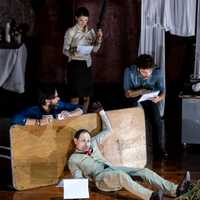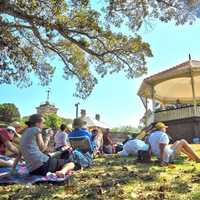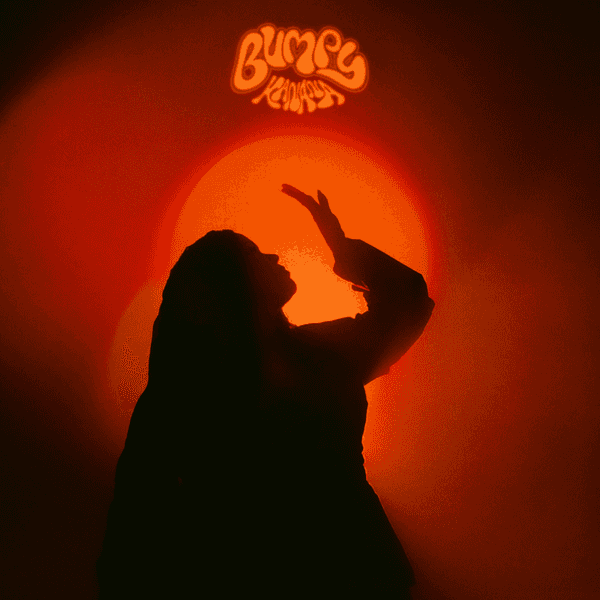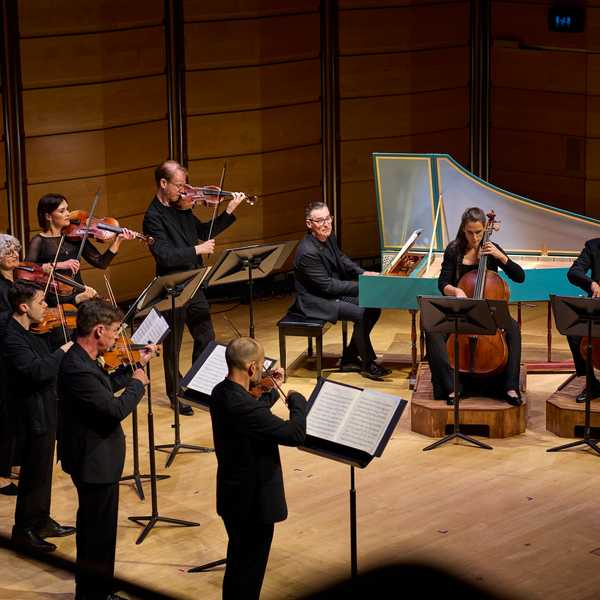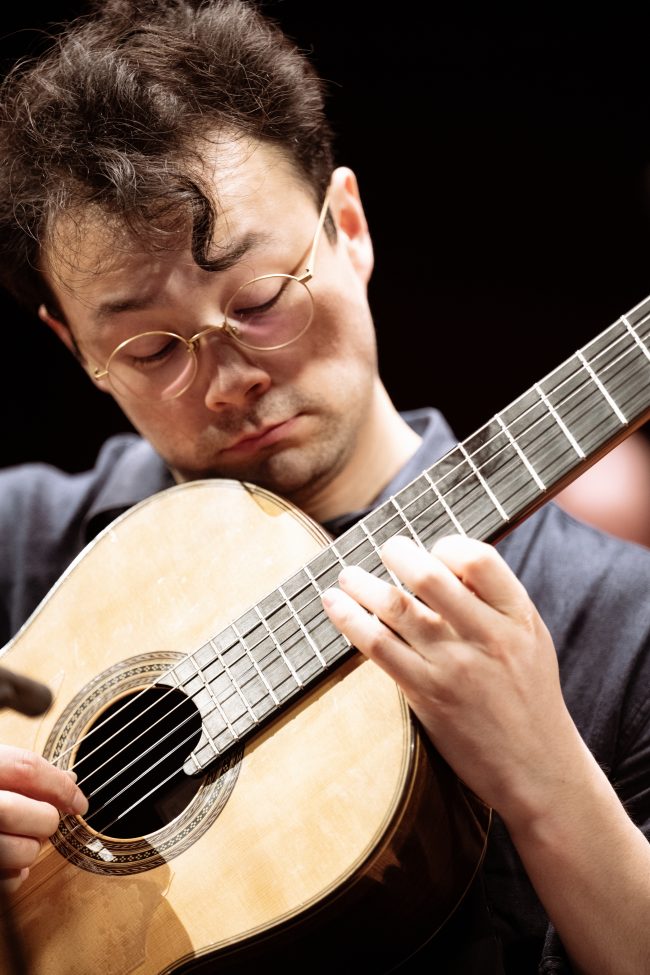
Wednesday 13 November 2024
The reason we go to see the Australian Chamber Orchestra is for musical excellence, innovative programming and mind-stretching new music. For some, Scotland Unbound with Scottish guitarist Sean Shibe might have exposed their limits of tolerance, but for many it was a new sensation that thrilled beyond expectation.
After meticulously tuning his guitar, not only the six strings but also checking many of the harmonics were perfectly pitched, Shibe finally gave Director, Richard Tognetti the nod to begin. The first piece was Shibe’s own gentle arrangement of a traditional Scots Tune, that seduced us into an imaginary world of tartan and bagpipes. Ever so slowly the orchestra crept in with James MacMillan’s From Galloway, a more contemporary piece. It soon became apparent that there was a clash in pitch between the guitar and the orchestra. Given the time spent tuning and the impeccable musicianship of the ACO, this had to be deliberate. After a while it became more obvious that the strings were sliding in and out of tune as determined by the score. Often throughout the entire program pitch was fluid and revolved loosely around what we have known as perfect pitch.
But it was the musicality of the performance that kept us spellbound. Shibe’s gentle lilting style brought out the sometimes delicate melodies with a plaintive melancholy. The arrangement of Friedemann Stickle’s Da Trowie Burn by Scottish compatriot James Crabb was a little heavy handed, obscuring some of the lighter guitar passages beneath the lush strings.
The next three works (also Crabb arrangements but for string orchestra alone) were Scottish to the core. This was particularly poignant when the melody was being played by a solo instrument, whether it was violin, cello or viola. In those moments we were transported to the craggy highlands or the boggy moors. As soon as the melody was joined by several instruments we flashed back to the concert hall and the spell was broken. The Scottish idiom seems to be based on nuances not only of rhythm and melody but also the loneliness of the solo instrument which echoes the cold stillness and the beauty inherent to the isolation of highland Scotland, the wild northern seas or the moors.
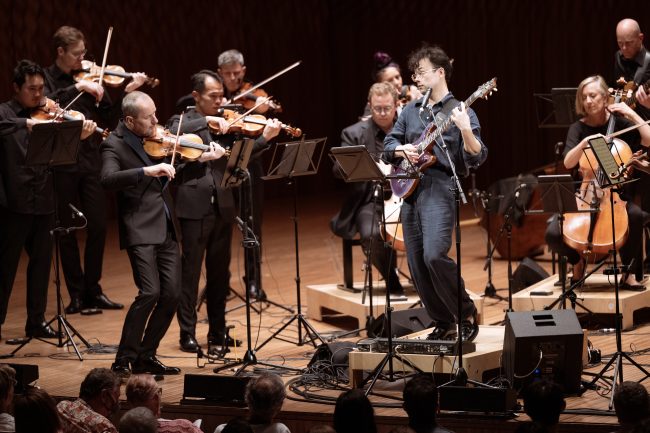
Shibe returned to the stage for the Australian premiere of Cassandra Miller’s Chanter, a dream-like piece based on Shibe’s singing many layers of his response to the music of small pipe player Brigade Chaimbeul. Again a very evocative Scottish soundscape ensued, with the sound of the guitar occasionally resembling a koto (traditional Japanese plucked instrument). And when he slid a metal slide onto his finger, the pitch again became fluid.
After the interval (during which treble pipes could be heard over the din of the enthusiastic crowd) the electric guitar featured in a very different sound-world that included amplification and a variety of digital effects. Julia Wolf’s Lad was originally scored for nine bagpipes in a slow lament of ever intensifying drones, the electric guitar (with a peddle board full of effects) and an amplified string section raised our level of anxiety to fever pitch. At this point some in the audience were overwhelmed and several older members could be seen blocking their ears or adjusting their hearing aids. I was reminded of an unfortunate incident when a hornet’s nest was violently disturbed. It really was an aural assault that left us drained but strangely exhilarated.
David Fennesy’s Hirta Rounds was a welcome respite with seemingly random entries in a perpetual motion of harmonics and resonances. This was a windswept seascape that lulled us into a peaceful trance.
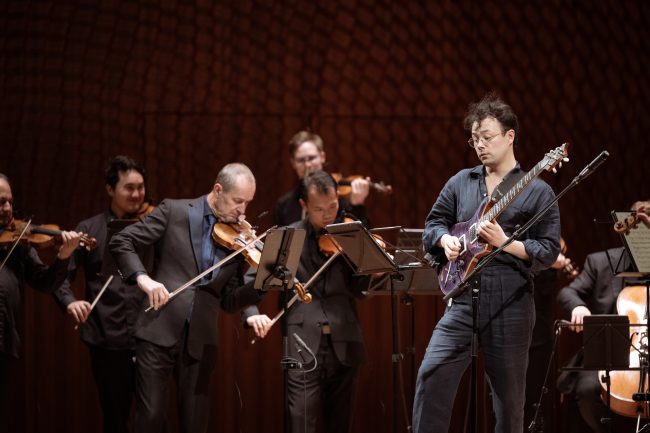
And finally Martin Bennet’s Bothy Culture. Double bassist Maxine Bibeau swapped his double bass for an electric bass, and Shibe strode the podium like a rock star. It only needed a zebra-skin leotard or two to complete the rock stadium illusion.
Well Richard Tognetti and the Australian Chamber Orchestra have done it again with our introduction to Sean Shibe and his guitars. Long may they continue to shock us, challenge our notions of what music is, and reward us both musically and intellectually. Bravo!!!
Share "Review: ACO – Scotland Unbound"
Copy

